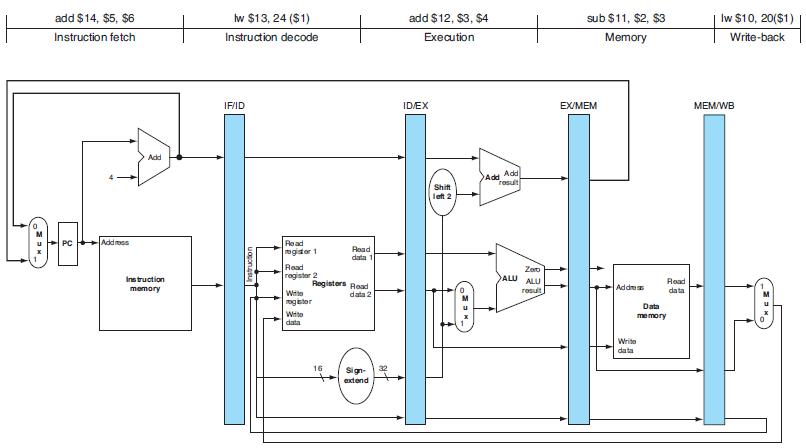Question: This exercise is intended to help you understand the cost/complexity/performance trade-offs of forwarding in a pipelined processor. Problems in this exercise refer to pipelined datapaths
This exercise is intended to help you understand the cost/complexity/performance trade-offs of forwarding in a pipelined processor. Problems in this exercise refer to pipelined datapaths from Figure 4.45. These problems assume that, of all the instructions executed in a processor, the following fraction of these instructions have a particular type of RAW data dependence. The type of RAW data dependence is identified by the stage that produces the result (EX or MEM) and the instruction that consumes the result (1st instruction that follows the one that produces the result, 2nd instruction that follows, or both). We assume that the register write is done in the first half of the clock cycle and that register reads are done in the second half of the cycle, so "EX to 3rd" and "MEM to 3rd" dependences are not counted because they cannot result in data hazards. Also, assume that the CPI of the processor is 1 if there are no data hazards.
Figure 4.45
If we use full forwarding (forward all results that can be forwarded), what fraction of cycles are we staling due to data hazards?
a. b. EX to 1st Only 5% 20% MEM to 1st Only 20% 10% EX to 2nd only 5% 15% MEM to 2nd Only 10% 10% EX to 1st and MEM to 2nd 10% 5% Other RAW Dependences 10% 0%
Step by Step Solution
3.48 Rating (161 Votes )
There are 3 Steps involved in it
To determine the fraction of cycles stalled due to data hazards when using full forwarding we need t... View full answer

Get step-by-step solutions from verified subject matter experts


